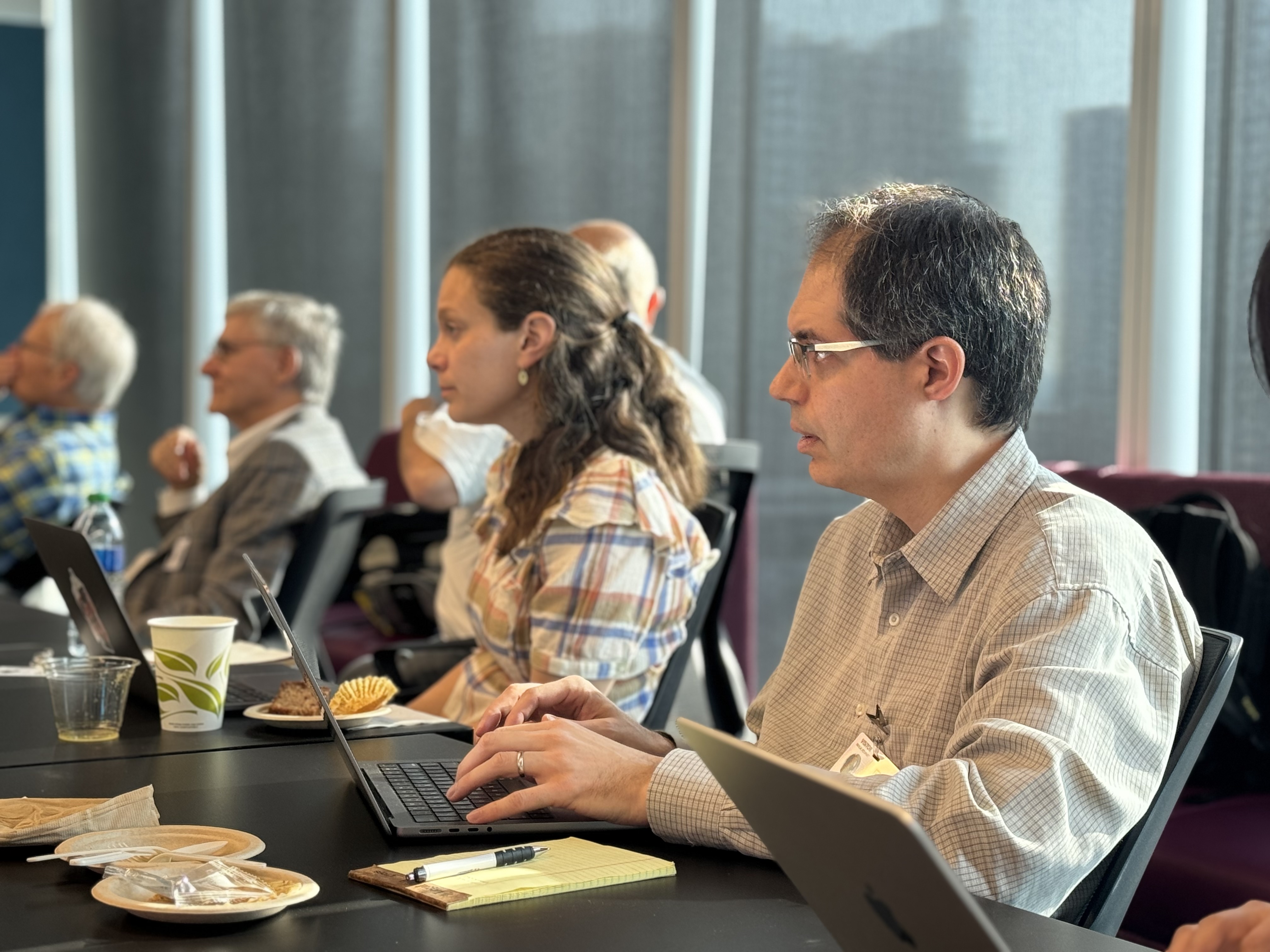The 2024 AI4OPT EAB meeting kicked off with an opening address from NSF Program Officer Georgia-Ann Klutke, paving the way for a day filled with engaging discussions and presentations focused on the program's sustainability and future initiatives. This was followed by AI4OPT Director Pascal Van Hentenryck discussing the vision, structure, research, and work of the Institute, emphasizing the importance of sustainability. Kevin Dalmeijer, AI4OPT's Managing Director, also highlighted the "Year of Sustainability."
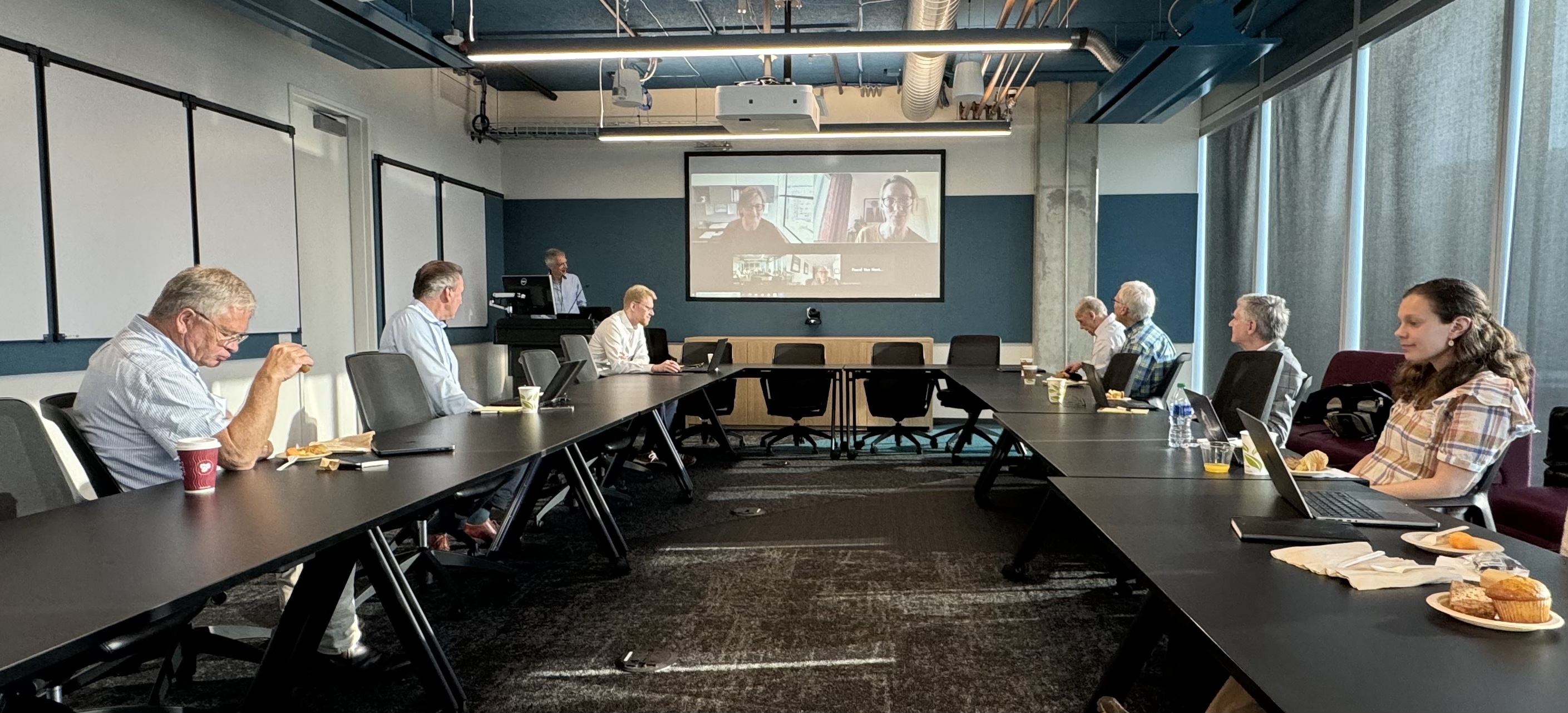
The theme revolves not solely around financial aspects but also ensuring the program's continuity for the next 20 years. Dialogue among members of the EAB focused on funding and projects, particularly the Industrial Partners Program, with the aim of attracting more industry collaborations.
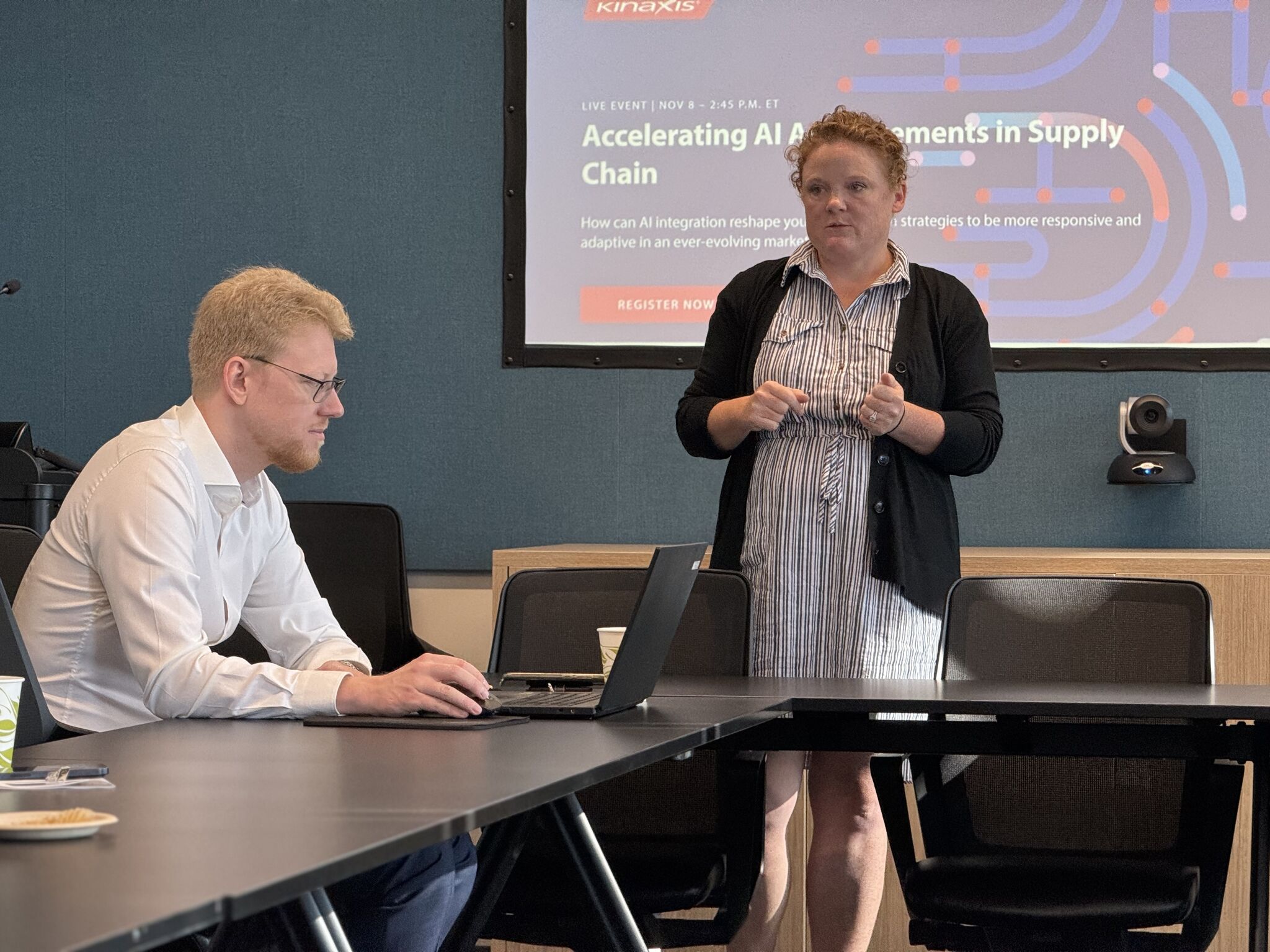
Stephanie Sigler, AI4OPT's Corporate Relations Manager, discussed her role within AI4OPT, emphasizing partnerships with Georgia Tech and the annual Tech Fest event. She also highlighted AI4OPT's collaboration with Kinaxis and its significance, among AI4OPT's abundance of partners.
During meeting discussions, EAB members talked about the possibility of establishing an Industry Advisory Board. Pascal reiterated that while the institute currently has one, it requires restructuring, which is where the newly installed AI4OPT Supply Chain and Manufacturing Consortium comes into play. Questions regarding risk also surfaced, including concerns about NSF funds and risks associated with industries like retail, which are still recovering from the pandemic.
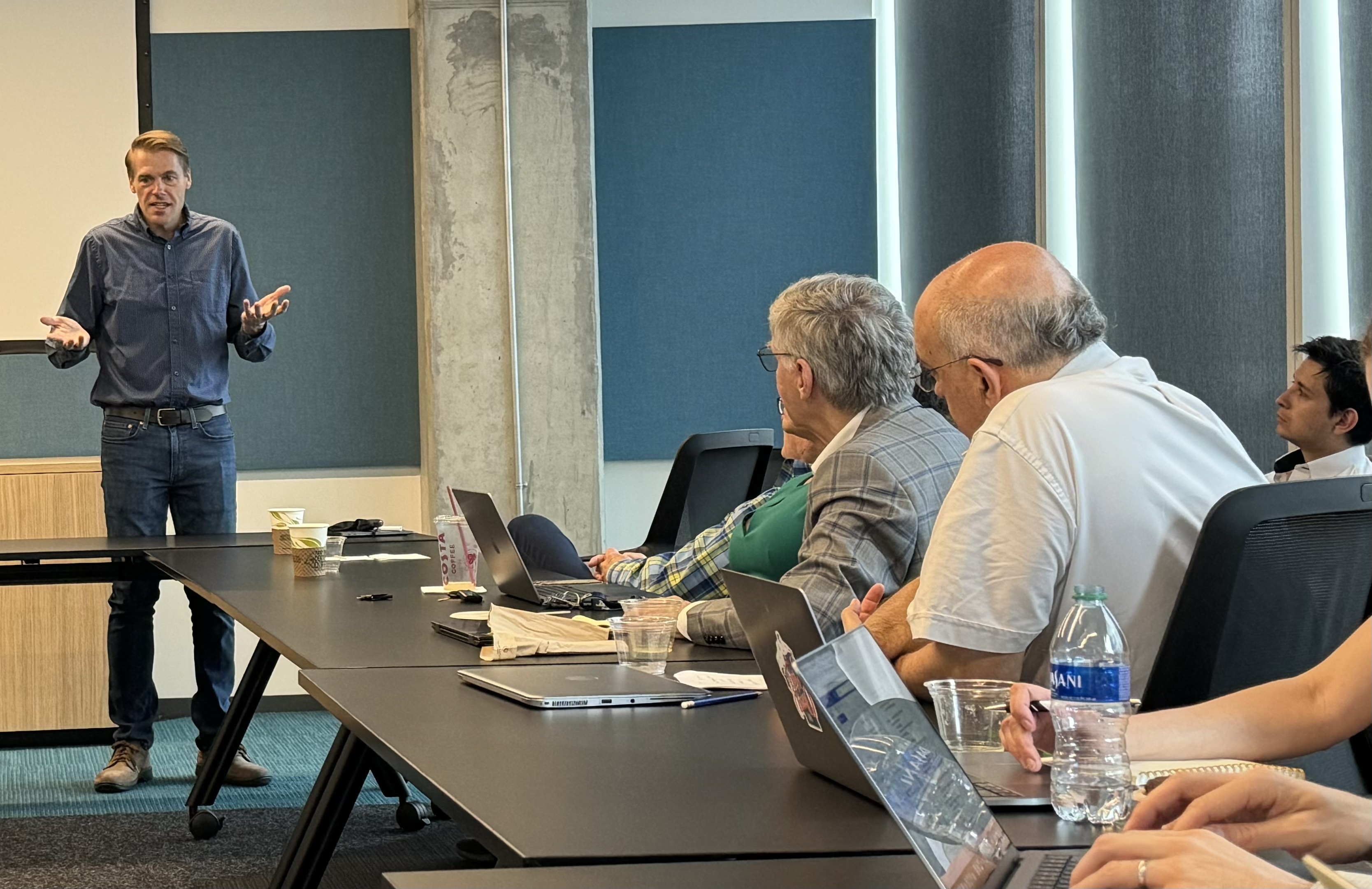
Later in the meeting, Dan Molzahn, a co-leading member of AI4OPT and lead of the Energy Team, as well as an assistant professor in the School of Electrical and Computer Engineering at Georgia Tech specializing in electric power systems, briefly discussed the work of the Ethical AI team within AI4OPT. He touched on his work in ethics and energy systems, particularly in wildfire risk mitigation, including the concept of burying power lines underground to reduce wildfire spread.
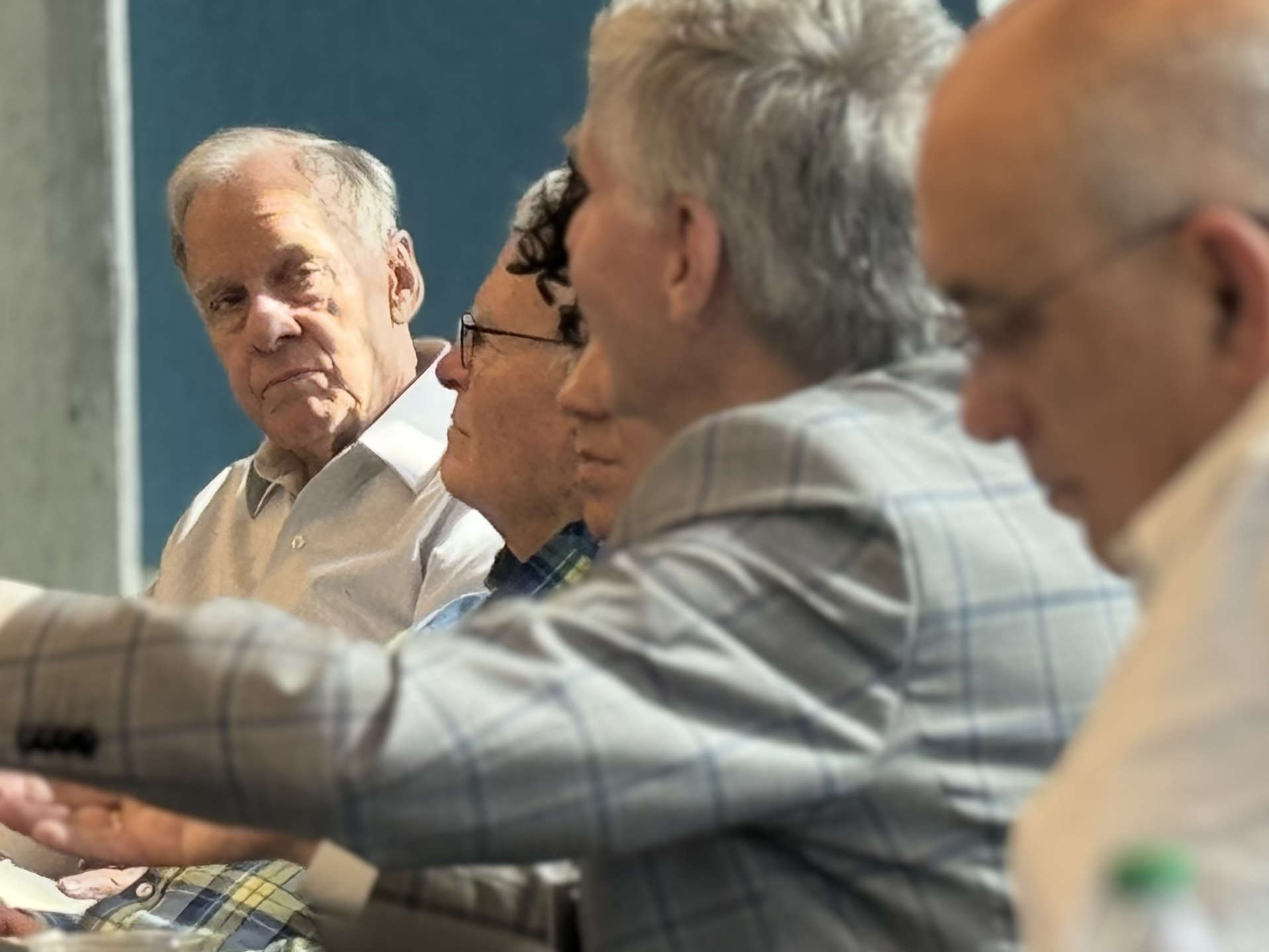 The ethical dilemma arises in how the benefits of such infrastructure improvements are distributed among various groups, particularly those with fixed or low incomes. These groups may struggle to replenish lost items during power outages, posing challenges in ensuring equitable access to the benefits of wildfire risk mitigation measures.
The ethical dilemma arises in how the benefits of such infrastructure improvements are distributed among various groups, particularly those with fixed or low incomes. These groups may struggle to replenish lost items during power outages, posing challenges in ensuring equitable access to the benefits of wildfire risk mitigation measures.
During the meeting, the EAB raised questions regarding the balance between optimization and AI in the work conducted by AI4OPT. Dan addressed this by explaining that while his expertise primarily lies in optimization, he does incorporate AI into specific processes within his work.
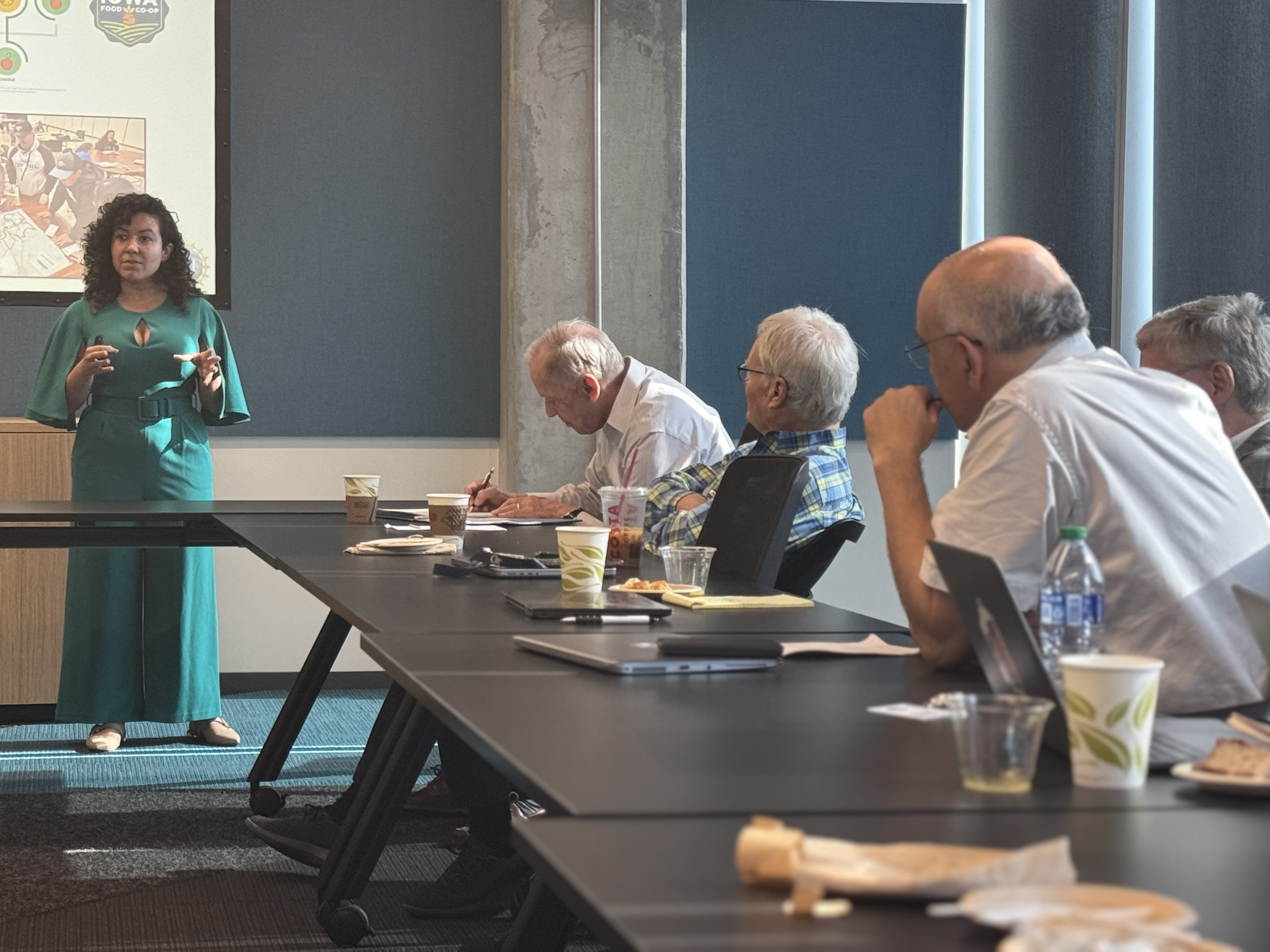
Rosemarie Santa González, an AI4OPT postdoctoral fellow, discussed ethics in the supply chain and her work with the Wisconsin Food Hub Cooperative and USDA in city logistics and food access AI through optimization simulation. This work spans across four cities in four states: Ohio, Wisconsin, Georgia, and Colorado, addressing food deserts. Building a large language model aims to enable practitioners to determine if support can be provided through farmers' markets versus grocery stores, and to explore the balance between growing food and purchasing it.
Afterward, Pascal delved into the Trustworthy Optimization: End-to-End thrust, discussing AI4OPT's work in optimization, including aspects such as proxies and more.
Next up, Yao Xie, a member of the AI4OPT team and an Associate Professor and Harold R. and Mary Anne Nash Early Career Professor at the Georgia Institute of Technology in the H. Milton Stewart School of Industrial and Systems Engineering, as well as an Associate Director of the Machine Learning Center, provided details on Decision Making under Uncertainty. She focused on optimization algorithms for statistical inference and learning guarantees. Yao elaborated on how all the thrusts within AI4OPT utilize this approach in various domains such as renewable products, energy, sustainability, and machine learning.
More presentations including Bistra Dilkina's presentation on Optimization Solvers online, while Justin Romberg discussed Distributed and Multi-agent Learning and Optimization, and Carlo Sferrazza presented Reinforcement Learning, led by Peter Abbeel. Combinatorial Learning was presented by Dorit Hochbaum, who also joined virtually along with a Student Leadership Session and much more.

